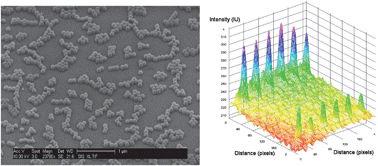The Royal Society of Chemistry launches the 2014 UK Emerging Technologies Competition
Applications are invited from university researchers and small companies working in the UK in applied research in the chemical, life and materials sciences for a chance to turn their research into commercial success. The prize consists of ongoing mentoring and support from high profile multinational companies, up to £10,000 cash prize and more. We are proud to announce the mentor companies Procter and Gamble, GlaxoSmithKline, Catalent Applied Drug Delivery Institute, Croda and more will be joining soon.

The applicants can be individuals or teams and they must submit a brief online application to the Royal Society of Chemistry. The entries will be judged by an independent panel of science and business experts and the shortlisted applications will be invited for the second round of the competition. Each team will pitch to a specialist panel at a public event and up to 5 teams will be crowned as winners. But everyone is a winner! The finalists will be able to access one to one FREE advice from business and finance specialists. In addition this is an excellent opportunity to practice pitching ideas to high profile multinational companies and to meet and network with fellow entrepreneurs, investors and business leaders.
Key dates:
First round closes on 1 March 2014
Second round takes place on 25 June 2014,
Chemistry Centre, London
Visit www.rsc.li/emerging-technologies for full details.
UK applications only please
If you have any questions please contact Aurora Antemir antemira@rsc.org.












